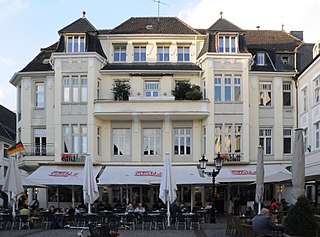A Quote by Francis Schaeffer
The Christian should be the person who is alive, whose imagination absolutely boils, which moves, which produces something a bit different from God's world because God made us to be creative.
Related Quotes
Christian community is like the Christian's sanctification. It is a gift of God which we cannot claim. Only God knows the real state of our fellowship, of our sanctification. What may appear weak and trifling to us may be great and glorious to God. Just as the Christian should not be constantly feeling his spiritual pulse, so, too, the Christian community has not been given to us by God for us to be constantly taking its temperature.
Is a Christian- one who communicates daily with the Creator- to divorce himself from the things God created and intended man to have, and which demonstrate the fact that man has been made in the image of God? In other words, are we who have been made in the image of our creator to be less creative than those who do not know the Creator? The Christian should have more vividly expressed creativity in his daily life.
It shouldn't be difficult, then, to make the transposition at this point into the early Christian vision of Jesus and the Spirit and the way in which the material world is both celebrated and renewed through their work. The Jewish basis for the early Christian patterns of belief and behavior is clear. It is important that God's people are embodied, because God made this world and has no intention of abandoning it. The material of creation is a vessel made to be filled with God's new life and glory, even though the transformation may involve suffering, persecution, and martyrdom.
God operates by different rules of time and space. And God's infinite greatness, which we would expect to diminish us, actually makes possible the very closeness that we desire. A God unbound by our rules of time has the ability to invest in every person on earth. God has, quite literally, all the time in the world for each one of us.
Prayer brings to us blessings which we need, and which only God can give, and which prayer can alone convey to us ... This service of prayer is not a mere rite, a ceremony through which we go, a sort of performance. Prayer is going to God for something needed and desired. Prayer is simply asking God to do for us what he has promised us he will do if we ask him ... Asking is man's part. Giving is God's part. The praying belongs to us. The answer belongs to God.
A Christian, who realizes he has been made in the image of the Creator God and is therefore meant to be creative on a finite level, should certainly have more understanding of his responsibility to treat God's creation with sensitivity, and should develop his talents to do something to beautify his little spot on the earth's surface.
We can think of Lent as a time to eradicate evil or cultivate virtue, a time to pull up weeds or to plant good seeds. Which is better is clear, for the Christian ideal is always positive rather than negative. A person is great not by the ferocity of his hatred of evil, but by the intensity of his love for God. Asceticism and mortification are not the ends of a Christian life; they are only the means. The end is charity. Penance merely makes an opening in our ego in which the Light of God can pour. As we deflate ourselves, God fills us. And it is God’s arrival that is the important event.
Why do we fail? Is it because we are unlucky? Is it because we have not worked very hard? I s it because we have not invoked God's Compassion and Blessings? Is it because God has accepted this failure as an experience He wanted to have in our life? Is it because God has granted this failure to us? Is it because God has willed that we should lose? No! not it is for a different reason that we experience failure. It is for the strengthening of our consciousness that, at times, God grants us defeat.





































